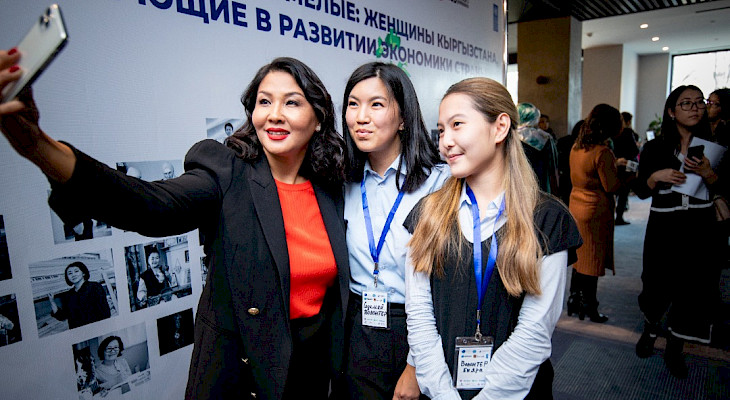In a significant move to empower female entrepreneurs, Kyrgyzstan has launched the Women Entrepreneurs Finance Code. This innovative program, developed in collaboration with the European Bank for Reconstruction and Development (EBRD), aims to improve financial access for businesses run by women.
Melis Turgunbaev, chairperson of the National Bank of Kyrgyzstan, emphasized the crucial role of women in the country’s small and medium-sized enterprise sector during the launch event. He stated, “This new code, coupled with the recent legal recognition of ‘women’s entrepreneurship,’ creates a robust institutional framework for channeling financial resources to this strategically vital segment.”
The initiative introduces regulatory incentives designed to reduce obstacles faced by women entrepreneurs. Key reforms include increased limits on unsecured loans and reduced reserve requirements for financial institutions offering loans under women-focused programs. These measures aim to make such loans more appealing and less risky for lenders.
Turgunbaev highlighted the practical approach of the initiative, saying, “We’re establishing real, functioning market mechanisms. Supporting women entrepreneurs is not just ethically right but also makes sound business sense.”
To ensure effective implementation and ongoing oversight, the program includes the formation of a National Coalition. This body will oversee stakeholder coordination, progress monitoring, and the collection of gender-specific data across Kyrgyzstan’s financial system. This data will inform future policy decisions, making them more targeted and evidence-based.
The National Bank reported that ten financial institutions have already committed to the new code, including seven commercial banks, two microfinance organizations, and the state-owned Guarantee Fund.
This initiative marks a significant step forward in Kyrgyzstan’s efforts to unlock the untapped economic potential of women-led businesses, potentially driving economic growth and fostering gender equality in the business sector.


